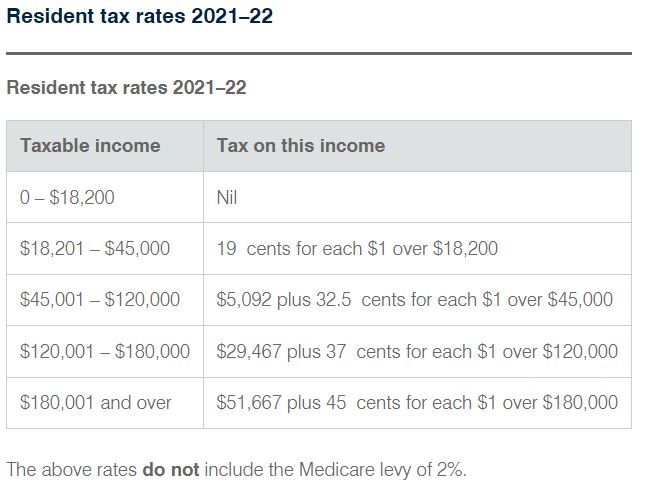How to Maximize Your Australian Tax Refund with Expert Advice
How to Maximize Your Australian Tax Refund with Expert Advice
Blog Article
Discovering the Benefits of Filing an Income Tax Return: Maximize Your Tax Obligation Reimbursement This Year
Submitting a Tax return is frequently perceived as a challenging job, yet it plays an essential function in boosting your financial standing. By methodically reporting revenue and leveraging available deductions and credit histories, individuals can take advantage of the capacity for considerable tax obligation refunds. Moreover, sticking to tax obligation guidelines reduces the danger of fines. Recognizing the nuances of this procedure can reveal forgot possibilities for financial savings. As we explore the different facets of tax obligation declaring, it becomes noticeable that the advantages prolong past mere conformity-- what techniques can you embrace to guarantee you are not leaving cash on the table?
Relevance of Declaring a Tax Return
Submitting a Tax return is a substantial responsibility for individuals and organizations alike, as it offers both conformity and monetary management objectives. Abiding by tax obligation laws is necessary, as falling short to file can result in considerable fines, rate of interest fees, and prospective legal consequences. By sending a Tax return, individuals and organizations show their dedication to fulfilling their civic duties and contribute to the functioning of public solutions.
Moreover, filing an income tax return provides an opportunity for taxpayers to assess their monetary situation. It allows them to track revenue, costs, and total monetary health and wellness, which can educate future budgeting and financial investment decisions. For lots of, income tax return are a portal to prospective reimbursements, as overpayment of tax obligations throughout the year can be redeemed, supplying a much-needed monetary increase.
In addition, the income tax return process can assist in access to different economic products and services. Lenders frequently call for tax obligation returns when determining creditworthiness for home loans or financings, making it essential for individuals and businesses looking for monetary assistance. To conclude, submitting a Tax return is not simply a governing responsibility; it is a substantial step in keeping economic honesty and disclosing prospective benefits.
Recognizing Tax Obligation Reductions
Tax deductions are regularly overlooked yet play an essential function in lowering taxed revenue and optimizing prospective reimbursements. Comprehending the different kinds of tax obligation reductions offered can substantially influence your overall tax obligation. Deductions can be classified right into two main types: itemized deductions and basic reductions.
The criterion reduction is a set buck quantity that taxpayers can subtract from their earnings, varying based upon filing condition. For several individuals, particularly those without considerable itemizable costs, taking the typical reduction is helpful. On the various other hand, itemized deductions enable taxpayers to checklist eligible expenses, such as home loan passion, clinical expenses, and philanthropic payments, potentially yielding a better deduction than the common option.
Familiarizing on your own with these subtleties can assist you tactically intend your finances and maximize your tax obligation return. By leveraging and understanding tax reductions effectively, taxpayers can decrease their taxable revenue and improve their total tax reimbursement.

Exploring Tax Credit Reports
Maximizing your tax financial savings entails recognizing the different sorts of tax obligation credit ratings available to you. Tax obligation credit histories straight decrease your tax obligation liability buck for dollar, making them more helpful than deductions, which just reduced your gross income.
There are two main classifications of tax obligation credits: refundable and nonrefundable. If the credit history surpasses your tax obligation owed, nonrefundable credit scores can lower your tax liability to no but will certainly not result in a refund. Refundable credit histories, on the various other hand, can create a reimbursement even if you have no tax obligation obligation, making them specifically beneficial for lower-income taxpayers.
Typical tax obligation debts include the Earned Revenue Tax Obligation Credit Score (EITC), which supports low to moderate-income working people and families, and the Child Tax Obligation Debt, which offers financial relief for taxpayers with dependent kids. Education-related credits, such as the American Opportunity Debt and the Life Time Understanding Credit, aid offset the prices of greater education and learning.
Typical Mistakes to Prevent
Maneuvering the complexities of tax obligation returns can lead to numerous usual challenges that taxpayers ought to understand. One substantial error is stopping working to report all sources of earnings. Even percentages from sideline or freelance job need to be consisted of, as the internal revenue service obtains duplicates of all income declarations.
One more frequent mistake entails forgeting reductions or credit histories for which one is qualified. Taxpayers should completely look into possible reductions, such as for trainee loans or clinical expenses, to avoid leaving money on the table.
Furthermore, mistakes in individual information, such as Social Safety and security numbers or filing standing, can postpone processing and reimbursements. It is vital to ascertain all details before submission to ensure precision.
Filing late or neglecting to submit entirely can additionally result in charges and missed chances for reimbursements. Taxpayers must understand deadlines and plan appropriately.
Finally, numerous individuals forget to keep detailed documents of expenses and sustaining records. Organized documents is fundamental for confirming insurance claims and assisting in any kind of future audits. By staying clear of these usual errors, taxpayers can improve their declaring process and improve their possible reimbursements.
Tips for Optimizing Your Reimbursement

Next, take into consideration adding to retirement accounts, such as an individual retirement account. Contributions made before the tax deadline can be deducted, potentially raising your refund. In addition, if you are freelance, make certain visit here to make up business-related expenditures that can minimize your gross income.
Another crucial approach is to submit your return digitally. E-filing not just quickens the processing time yet also lessens mistakes that can occur with paper submissions. Furthermore, confirm that you select the correct declaring status; this can significantly influence your tax price and eligibility for particular credits.
Lastly, maintain precise documents throughout the year. Organizing invoices and financial documents can simplify the declaring process and aid you identify potential deductions that you could or else miss out on. By taking these steps, you place yourself to receive the maximum reimbursement possible.
Verdict

By systematically reporting revenue and leveraging available reductions and credit ratings, people can touch into the potential for considerable tax obligation refunds. For several, tax obligation returns are an entrance to prospective reimbursements, as overpayment of tax obligations throughout the year can be redeemed, using a much-needed economic boost.
Recognizing the various kinds of tax deductions offered can considerably affect your total tax responsibility. Online tax return Australia. By recognizing and leveraging tax reductions properly, taxpayers can minimize their taxed earnings and enhance their overall tax reimbursement

Report this page